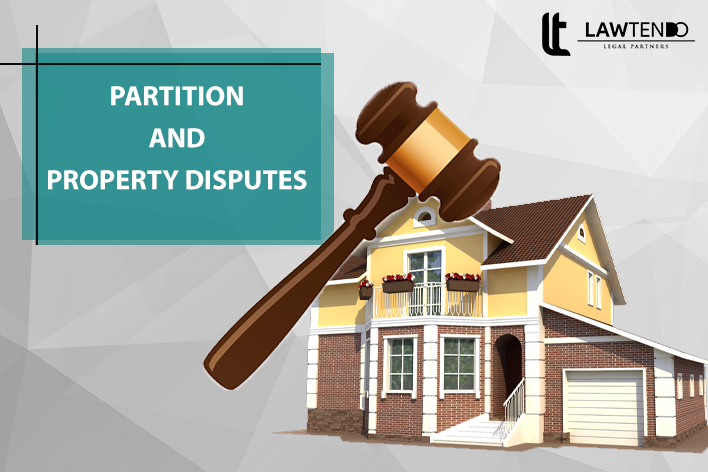Property Partition Laws in India

Date : 15 Nov, 2019
Post By Adv. Jai Dixit
Mr Lal and his brother used to manage the ancestral property of their parents. They are both now deceased without making a proper will or transfer of property. Mr Lal’s son now wants to sell his share in the ancestral land but, his cousin strongly objects to the same. In such a case, he will now have to file a partition suit in the Civil Court. Land disputes in India are much complicated and it is often seen to prolong for years at a stretch. They also account for almost two-thirds of total pending cases, which is approximately about 2.2 Cr cases in India. Transfer of property in India is not an automatic process but a rather time-consuming one under the law. In the absence of an updated title on a property, It is assumed that the property is abandoned and any lack of action on the same causes various property disputes giving rise to legal actions such as filing a Civil Lawsuit in India. Inheritance rights of members of the family are laid down under the Hindu Succession Act. Despite these rules, it is not uncommon to see tiff between different members of a family regarding property partition. Therefore, here we explain as to how can a partition suit be filed in India. The Law While partition in a Hindu Joint Family falls under the Hindu Succession Act 1956, the partition in a Hindu Undivided Family falls under the Hindu Partition Act of Property 1892. Filing of the petition The first step to filing a Partition Suit is to send a legal notice. If the legal notice goes disregarded then one can proceed with the filing of the petition. If one does not have any supporting documents for the property, it can be taken out from the registration office. Usually, no documents are required to file a partition petition, however, you need to mention the property of dispute. It is important to file the partition petition early in the disputed property because, once the petition is filed, it becomes the responsibility of the other party to prove their rightful share of the same. Requirements to file a Partition Suit: Certified copy of title deed of properties which one claims as ancestral property Description of the property ( such as area, location with survey numbers, boundaries etc) Market Valuation of the property done by the concerned sub-registrar Death Certificate of your grandparent/ parents (whichever is applicable) which can be arranged from the concerned municipal authorities. For a property which is in joint possession, a nominal court fee of Rs. 200 is applicable. Note: The partition Suit of the property must only be filed in the court that has jurisdiction over the location in which the property is established. Establishment of the rightful ownership After the petition has been filed, the next step in the process would be where the court tries to establish the rightful ownership over the property in order to proceed with the trial. The court may allow an inquiry or may appoint a commissioner who would evaluate your claim and submit a report. Resolution If all parties agree to the valuation report, a partition deed is created based on the Land Partition Act. The deed requires the court’s sanction to be legally valid and also it must be executed on a stamp paper, clearly specifying each person’s share and date of partition. If the parties could not reach to an agreement on the valuation report, a civil suit is filed in the curt and proceeds further till any conclusion is reached on the partition. This process is lengthy and may take years. An experienced property lawyer could not only help you reach a quick resolution for such cases but also, help you attain your rightful share in case the partition suit goes into civil court for trial. Contact Lawtendo for support on such cases.





